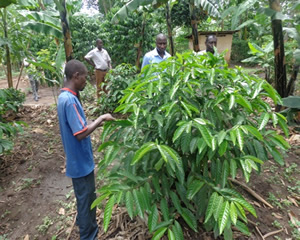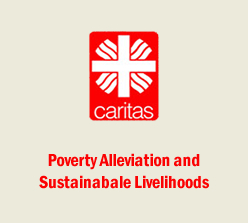The 3rd edition of the annual farmer’s forum took place in October, 2014 at Caritas Kampala head offices. The forum was premised on the theme; “Prevalence of poor and substandard agro-inputs, what have you done?” The forum was graced by 300 farmers, representatives from Transparency International, National Drug Authority, MAAIF, members of parliament (2), CAPCA Directors from Caritas Kampala, MADDO, Caritas Kiyinda Mityana, Caritas Kasanaesis, Caritas Lugazi, CIDI Rakai and Tusubira Women’s, Group, Liaison Officer, CAPCA staff, National Agro – inputs dealers Download
This magazine gives some of the results arising out of CAPCA III Project implementation aimed at Empowering farming communities of small holder farmers and their organizations for sustainable livelihoods. Download
This bulletin is an inventory of implementation carried out for CAPCA III Project aimed at Empowering farmers and their organizations for sustainable livelihoods in rural and per-urban communities. Download the Report
The bulletin showcases some of the successes and lessons learnt from CAPCA II Project on poverty Alleviation and promotion of sustainable livelihoods among households of subsistence farmers. Download
Collective marketing plays a major role in farming throughout the world. In most countries farmers have found that they can increase their incomes and efficiency by working with otherfarmers to market their products, purchase their inputs and co-ordinate their farming techniques.
Previously, most agricultural markets were controlled through state-operated marketing boards which fixed prices for surplus production. For that reason, there was no strong incentive to conduct collective marketing. Now that marketing activities are almost entirely handled by private traders,
The co-operative marketing system started with primary societies which marketed members’ produce. In Uganda it was mainly cotton and coffee that were then bought and processed by private businessmen for export to feed the factories in European countries. The exporters and processors had
exclusive right to do so and made huge profits at the expense of the producers. It became clear to the native producers that they could earn much more if they processed their own produce to add value as these middlemen were doing,
The bulletin depicts implementation, results and voices under CAPCA II project on poverty Alleviation and promotion of sustainable livelihoods among households of subsistence farmers. Download
Kassanda CAPCA farmers’ association is found in Kassanda sub-county, Mubende district. The association comprises of 8 groups and 214 peasant farmers, of which 107 are women.
The farmers of Kassanda farmers’ association were in the month of March 2013 provided with capacity buildings in advocacy as a community empowerment tool to enable them sustain their livelihoods.
During the process of monitoring association members regarding the implementation of association activities, the monitoring committee found out an outbreak of the coffee twig borer which was drastically affecting coffee yields and production.
Katikamu CAPCA farmers’ association is found in Katikamu sub-county, Luweero district. The association comprises 10 groups and 322 peasant farmers, of which 189 are women.
The members of the association were able to mobilise finances among themselves, through sale of shares and bought an acre of land at Ugx 5.0 million on which they have established a premises for a coffee factory. The coffee factory is located in Kyalugondo village in Katikamu sub-county.
Through CAPCA the small scale coffee huller for the association was procured with support from Caritas Danmark in 2011.















